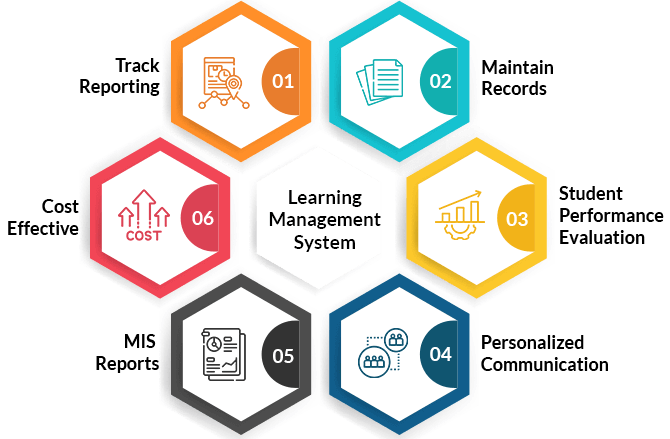The Ultimate Guide to Choosing the Right Discovering Management System
Picking an appropriate Knowing Management System (LMS) is a pivotal decision that can substantially impact educational performance and overall organizational goals. The nuances of these considerations increase crucial questions that merit exploration, specifically as the landscape of electronic understanding continues to progress.
Comprehending Knowing Monitoring Solution
In the context of modern education and training, a Knowing Management System (LMS) offers as an essential device for supplying, monitoring, and managing training web content. An LMS promotes the company of instructional sources, allowing institutions and companies to develop a centralized center for learning products. This system supports different learning modalities, including online courses, mixed discovering, and conventional class setups.
LMS platforms are made to improve the discovering experience by supplying a structured atmosphere where learners can access material at their ease. They typically include features such as analyses, progress monitoring, and reporting devices, which help teachers keep track of trainee efficiency and involvement. In addition, LMSs can be personalized to fulfill the specific needs of different students and organizations, enabling for tailored instructional experiences.
The assimilation of an LMS into instructional setups also promotes collaboration among learners and teachers, cultivating a sense of neighborhood via conversation online forums and team tasks. As companies increasingly identify the importance of constant knowing and growth, the function of LMSs in helping with efficient training solutions remains to expand, placing them as important assets in the educational landscape.
Trick Features to Consider
When selecting an Understanding Monitoring System (LMS), a number of essential features call for mindful consideration to make sure the system lines up with academic objectives. Most importantly, user-friendliness is necessary; an uncomplicated interface promotes simplicity of navigation for both students and administrators.

Combination with existing devices is an additional substantial element; the LMS should effortlessly get in touch with devices like CRM systems, video conferencing systems, and web content databases. canvas singapore. Mobile compatibility is significantly vital, as students commonly prefer access to resources on-the-go
Furthermore, customization options permit organizations to customize the LMS to their certain branding and instructional needs. Last but not least, take into consideration the platform's scalability, guaranteeing it can accommodate future growth and changes in customer demand. Focusing on these essential functions will certainly aid in choosing an LMS that properly improves the learning experience see this and meets institutional objectives.
Prices Models and Budgeting
Budgeting for visit this web-site a Learning Monitoring System (LMS) calls for an extensive understanding of numerous rates models to ensure a lasting investment. Organizations must examine their particular requirements and lasting objectives while considering the financial implications of each LMS option.

In addition to the base pricing, organizations should also think about potential extra costs such as implementation, upkeep, and support services. It is critical to assess the total cost of possession over the LMS's lifecycle, consisting of possible upgrades or extra functions that may be necessary as the company expands. By meticulously examining these prices designs and connected costs, companies can make educated decisions that align with their financial restrictions and academic objectives.
Reviewing Individual Experience
Evaluating the effectiveness of a Learning Monitoring System (LMS) goes past financial factors to consider; individual experience plays a pivotal duty in the general success of the platform. A properly designed interface can significantly boost interaction and retention, making it important to review exactly how intuitive the system is for both managers and learners.
When analyzing individual experience, take into consideration navigational simplicity, accessibility functions, and the additional resources responsiveness of the platform throughout various gadgets. An LMS should supply a seamless experience, enabling customers to rapidly situate resources, track progression, and engage with web content without unnecessary rubbing.
In addition, gather responses from actual individuals to determine fulfillment degrees and identify prospective pain points. Emphasis teams or surveys can use beneficial insights into just how learners communicate with the system and any type of obstacles they deal with.
It's likewise crucial to analyze the level of modification available within the LMS. A versatile system that enables companies to customize the user interface and includes to their certain requirements can dramatically improve user interaction. Inevitably, a favorable user experience fosters a knowing atmosphere that encourages involvement and assists in expertise retention, making it a vital factor in the selection of an LMS.
Implementation and Support Options
Efficiently rolling out an Understanding Administration System (LMS) requires careful factor to consider of both application techniques and recurring assistance options. Organizations needs to examine whether they will take care of the application in-house or collaborate with the LMS supplier.
Ongoing assistance is similarly important to make certain the LMS stays effective and easy to use - canvas singapore. Organizations ought to analyze the types of assistance provided by the supplier, including technological support, customer training, and routine updates. A durable support system can aid fix concerns rapidly, therefore improving customer fulfillment and involvement
Furthermore, take into consideration the accessibility of sources such as user handbooks, Frequently asked questions, and online discussion forums. These can encourage users to fix their very own issues and promote a feeling of community. Eventually, the appropriate implementation and assistance alternatives will not only help with a smoother change to the LMS yet also add to its long-lasting success within the company.
Verdict
Finally, choosing an ideal Discovering Monitoring System (LMS) necessitates cautious factor to consider of a number of essential aspects, including key functions, pricing designs, customer experience, and application strategies. A well-chosen LMS not only enhances academic outcomes but additionally promotes collaboration among customers and incorporates flawlessly with existing devices. canvas singapore. Eventually, an extensive examination of these components will support companies in attaining their academic goals and guaranteeing an effective knowing environment for all stakeholders involved